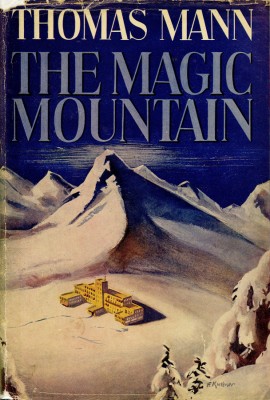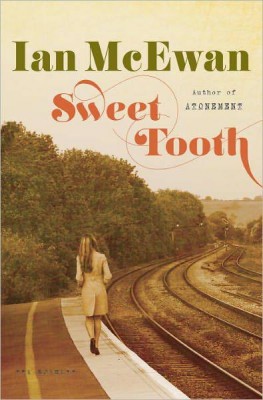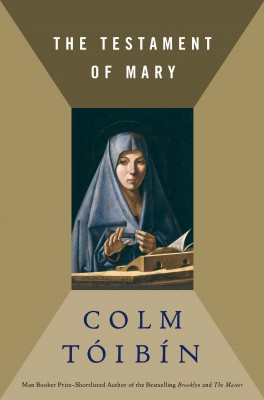AH, THE EMBRACE of Greece: the scent of sun-warmed pines, the wine-dark sea, the gurgle of retsina and the sound of the hotel manager taking umbrage when he sees you with a plastic bag bearing the word Lidl. “German supermarket!” he points out, loudly, from the other side of the courtyard. “We had a war with them!”
Talk about sorting the wheat from the chaff. I start apologising profusely (why? Why? I only wanted a bottle of water. I didn’t even need the bag, but I was afraid of seeming ungrateful to the lady at the checkout). My companion, however, responds in kind. “So did we!” he returns, and I can tell that he is about to embark on a well-practiced speech about how the Allied victory in the Second World War finds its expression nowhere more clearly than in the freedom to determine one’s own water vendor. The irony being that he, by birth, is an Irishman and, let’s face it, they didn’t pitch in at all*. I move us along, and sharpish.
A knight’s move digression: perhaps unsurprisingly, it’s not an isolated incident. “I don’t want to talk about it,” says the woman behind the desk at the airport when we fly back home; the Irishman has attempted an unwise joke about Angela Merkel. I already feel bad enough because we’re buying extra leg-room swank swank, but can I just explain with a piece of life advice? Fly on the cheapest flight you can find, then pay for the extras. It costs you far, far less than flying on a grown-up airline and you can indulge that really vicious, unpleasant part of you that likes sashaying through whatever red rope’s going.
Back to the hotel: we scoot through the courtyard, decant our water into the little fridge, stash our German crisps (accident! Sorry!) under the bed and get back to our holiday. Which, largely, consists of swimming in the sea, alternating between two wonderfully named ice-cream brands, Scandal and Status, and then walking to the tiny church on the headland to offset Scandalous Status anxiety calories. In the evenings, we attempt to distribute our inadequate economic wares between the tiny town’s tavernas. We ask someone, at the beginning of the week, if any is better than another, or if there might be one that’s best avoided. “No,” comes a reply that mingles pride and sadness. “No one can afford to give a bad meal these days.”
Really, though, we read our books. It’s possible that this is what the drippy, darkened, slightly cold English summer has driven us to: a warm place to read, free from our sunshine-deprived compatriots, who have become querulous workaholics over the last few months and whose only crutch, the Olympics, has been summarily taken away from them. But we are hardy souls: if Mount Olympus won’t come to us, we’ll go to it.
If you’re still here after the legroom confession, here’s another: I like to theme my holiday reading. To this end, first out of the bookbag that has brought us so perilously close to the limits of our baggage allowance is Michael Frayn’s Skios, a novel set on a fictional Greek island, in a sort of high-falutin thinky foundation, involving a stolen identity and the multiple mishaps — romantic, sexual, proprietorial, intellectual, sartorial — that ensue. I’ll be frank: I have to work up to The Magic Mountain, brought out for its annual excursion to pastures new yet one more time. Thomas Mann’s face stares balefully up at me from the little table next to the lounger. But Thomas, I silently counter, you’re German. They won’t like you here.
Anyway, I’m deep into a Hellenic-flavoured farce. Someone has lost his trousers. Two Greek taxi-driving brothers are being mistaken for one another yet again. A couple are preparing to kiss under the bougainvillea but are interrupted at the crucial moment by some chancer on the run and a crowd in hot pursuit. When it seems as though things can’t get any more convoluted, a Russian oligarch with pure badness on his mind turns up.
This pleasant malarkey passes a good few hours, interrupted only by the Irishman, who has never really understood that reading is a solitary occupation. He is far more daredevil than I am; he doesn’t begin to curate his bookbag weeks in advance, he doesn’t theme, he doesn’t attempt to anticipate his moods. In fact, he usually likes to buy his holiday reading at the airport, and this occasion is no exception. At Gatwick, though, he has struck gold — or, rather, I have, spotting a book about spies by Ben Macintyre, whose previous books, Agent Zigzag and Operation Mincemeat, he has adored. So much so that, when I met the author once at a book launch for a mutual friend, I felt honor-bound to convey my companion’s enthusiasm. I might have been a bit tipsy; he looked pleased, but also slightly startled. This new tale of espionage goes down so well that I receive further instructions; if I ever chance to meet Macintyre at a party again, I am to tell him to return home immediately and continue with the next installment.
The companion does not believe in the silent enjoyment of books, nor the sanctity of individual mental endeavour. Rarely a moment passes without a jubilant interjection, a detailed précis, even, occasionally, a few paragraphs read aloud. It sounds terrific, especially the only bit I remember, which is that there is a spy who is nicknamed Agent Balloon because he is tremendously fat.
But perhaps this tale of derring-do affects me more than I might care to admit. Certainly, I find myself passing over The Magic Mountain once again and alighting this time on Ian McEwan’s Sweet Tooth, another book about spies. Well, it’s sort of about spies. It’s also about young people having sex with one another in the 1970s, and nostalgia for pub-rock bands, and why women had a bad time of it, even though they were going to the pub and shagging. Alas, it only occupies a day or two. The tubercular sanatorium beckons once again, and can only be put off with a couple of quickies on the Kindle: that Jennifer Egan story that came out in tweets, a concise memoir by Colm Toibin and a short, clever, upsetting novel called The Lighthouse, by Alison Moore. The tweet story is gripping and creepy, but all the time, I am thinking about Twitter and short sentences. Is it really all that interesting an experiment? Look! I am reading a memoir by Colm Toibin. It has long sentences! It is great! But it could not go on Twitter!
Enough. How brilliant is this bit of “theming”? Not only do I have The Magic Mountain, which is set in a sanatorium, but I also have Will Self’s Umbrella, which is set in a mental hospital and of which I have read some, but not all. The companion notes their relative page lengths; Umbrella, he says, has about half the number of pages of The Magic Mountain (still quite a lot). He proposes a dazzling Modernist experiment; why don’t I read them in concert, he suggests? Two pages of Mann for every one of Self, attempting a sort of thematic concordance as I go. Eyes narrowed, I put them together alright; together under the bed with the crisps.
Which leaves but a single unread book, and that, rather delightfully, is one that we can enjoy together. For it is a guidebook, and one of such monstrously de haut en bas killjoy tendencies that it invites, at every turn, active participation. We read, sitting in a nice bar by a stunningly beautiful harbour, that we are idiots for following the herd to the water’s edge; we’ll have to sit next to Other People, and be overcharged for our beer, and contribute to the ruination of the environs with our horrible touristy ways. It directs us instead to a little-known restaurant in an unmarked side-road off a main road that’s not on our map, which is best reached by a taxi.
We ponder its injunction that we should under no circumstances hop into a glass-bottomed boat, which will no doubt be a tremendous rip-off and also feature those dreadful Other People. We don’t like to disobey orders for the sake of it, so we ditch the boat and get on a little train instead, one that’s all tricked out to look like an old-fashioned steam engine, with a pretend driver reading out a prepared script that goes heavy on the wine-dark seas and the compelling properties of olive oil which, as luck would have it, is available for purchase from a little stand just coming up on the left. It is completely brilliant. When we get off, a pony and trap swooshes by and offers us a tour of the town. We are sorely tempted.
All of which is a roundabout way of saying that I do not embark on The Magic Mountain until we are sitting in the departure lounge drinking flat beer. It begins badly; there is an introduction of such learning that I cannot understand a single word. I read on. A man is on a train. He is going to visit his cousin. Wow! This stuff is easy. If only I hadn’t left it until the last minute.
*An intervention: “Unless you count Field Marshal Montgomery.”





